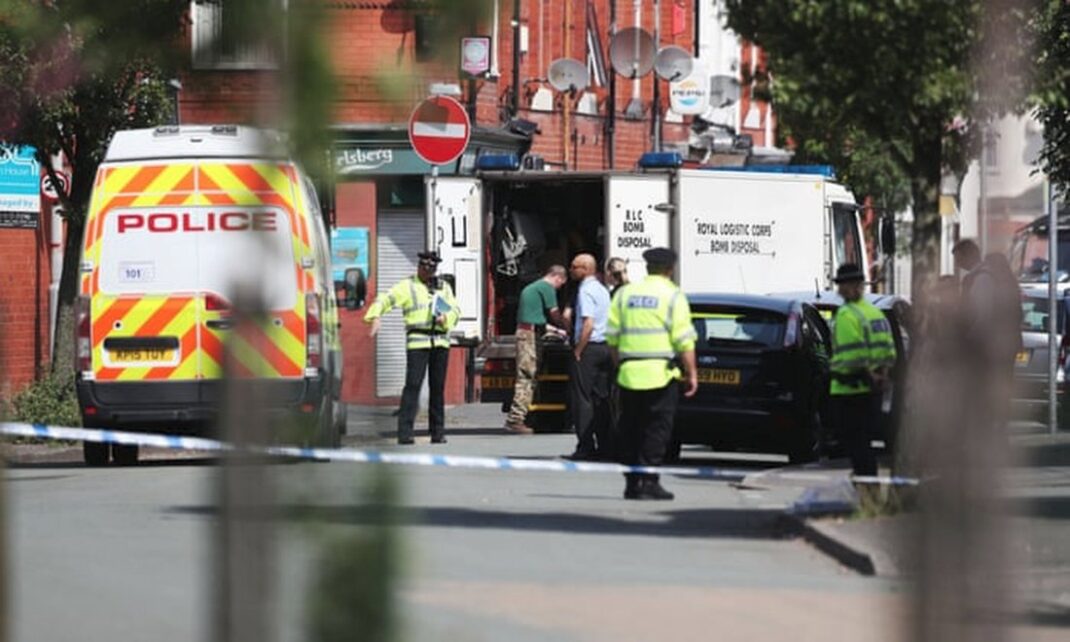By Rakib Ehsan
 From the Manchester Arena bombing to the Reading attack, a British Libyan jihadi nexus has emerged.
From the Manchester Arena bombing to the Reading attack, a British Libyan jihadi nexus has emerged.
While the UK continues to grapple with the coronavirus pandemic, the national terror threat level was recently raised to ‘severe’, with the prevailing danger of Islamist terrorism continuing to persist.
British Islamism has undoubtedly established itself as a major problem in England’s two largest cities – London and Birmingham.
In London, it is the capital’s eastern boroughs – Tower Hamlets and Newham – that are a particular cause for concern. Both incorporate largely segregated Muslim communities, with many having their origins in deprived agricultural parts of Sylhet in north-eastern Bangladesh.
A number of Birmingham wards, such as Springfield and Sparkbrook in the city’s Hall Green parliamentary constituency, contain poorly integrated, predominantly Pakistani-origin, deprived neighbourhoods. Much of Birmingham’s Pakistani-heritage population originates from economically dislocated rural villages in the Azad Kashmir region.
But a notable trend from another one of England’s major cities, Manchester, is Libyan Islamist extremism. Indeed, the UK’s counter-terrorism police chief, assistant commissioner, Neil Basu, has previously suggested that the ‘British Libyan jihadi nexus’ had not been given sufficient attention by British public authorities.
Salman Abedi was born in Manchester after his family was granted asylum in the UK from Libya, where his father, Ramadan, supported Islamist forces seeking to overthrow Colonel Muammar al-Gaddafi’s regime.
With the help of his brother, Hashem, who is currently serving a minimum prison sentence of 55 years, Salman carried out the 2017 Manchester Arena Islamist suicide bombing, which killed 22 people.
British Libyan dual national Abdalraouf Abdallah was imprisoned in 2016 for helping others to join Islamic State militants in Syria, but is soon due to be released.
Abdallah set up a ‘hub’ of communication for would-be jihadist fighters – including his imprisoned brother Mohammed – from his home in Manchester.
According to the prosecution at his trial, Abdalraouf was ‘directing operations on a daily basis’, using contacts in Belgium, Jordan, and Syria. A paraplegic who was badly injured when fighting with Islamists in the 2011 Libyan uprising, Abdalraouf has also been identified as a potentially radicalising influence on Salman Abedi, with the topic of ‘martyrdom’ featuring in correspondence between the two.
The May 2017 Manchester Arena bombing did not emerge from a vacuum. Clusters of British Libyan Islamists, associated with organisations such as Islamic State, al-Qaeda and the formerly proscribed anti-Gaddafi Libyan Islamic Fighting Group (LIFG) have become embedded in parts of inner-city Manchester.
The Abedi brothers, behind one of the most devastating terrorist attacks on British soil, were conditioned in this Islamist milieu. Having a background of close family links with extremist figures in their own community, they proceeded to develop bonds with local fundamentalists – with Salman even visiting Abdalraouf Abdallah at two separate prisons.
Britain’s Libyan Islamist problem is a fine example of how its exuberant altruism has been, in some ways, to its detriment. But it also exposes how the British political establishment has traditionally overestimated how willing people from vastly different religio-political contexts will be to integrate into mainstream democratic society, and underestimated the need for a robust social-cohesion policy as a pivotal element of counter-extremism strategy.
This has even led to some describing Britain as the ‘weak link’ in Europe’s counter-extremism network.
This all tells a story of the misplaced idealism contained in the modern politics of diversity – one which fails to understand the potentially devastating social effects of poorer integration outcomes in Britain’s failed inner-city neighbourhoods.
Whether it is Bethnal Green in east London, Sparkhill in inner-city Birmingham or Cheetham Hill in Manchester, the UK has been sleeping at the wheel on this front.
The government needs to take the existence of ‘parallel communities’ and ‘counter-societies’ more seriously – failed neighbourhoods characterised by social segregation, material deprivation and historically high levels of Islamist activity.
Looking to the future, Britain must adopt a hardheaded approach to border security. Along with the prioritisation of English language skills, the nature of legal, social, political and cultural norms in foreign regions of origin should be given serious consideration in a revamped immigration system that has integration at the heart of it.
An integral part of post-Brexit national security should be a significantly reformed asylum system that better prioritises social cohesion and public safety. This ought to be a major policy priority after the June 2020 Reading attack, where Libyan refugee Khairi Saadallah stabbed three people to death.
The core essence of state-supported multiculturalism – promoting cultural difference over social cohesion and prioritising minority rights over collective responsibilities – has not served Britain well.
To support its efforts to create a more socially trusting and democratically stable society, the UK government needs a security-oriented immigration and asylum framework which better prioritises collective British safety.
The threat posed by British Libyan Islamists shows how much work there is to be done.
***
Dr Rakib Ehsan is a research fellow at the Henry Jackson Society.
_________





